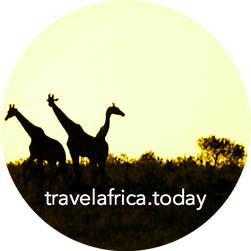|
Leaving Kruger we are headed for a farm outside of Hoedspruit, “Little Cathage” in the Ndlovumzi Nature Reserve. Turning off the easy-driving tar road we hit a rugged gravel road that apparently will lead us to where we are staying. As we are bounced around and the road continues our anxiousness increases and we prepare ourselves for another rustic experience. Heather, our hostess meets us and leads us up a short path to where we are staying. All our qualms and reservations instantly vanish. Two cottages connect to an outside dining area and kitchen before flowing on to a huge deck with sunken pool giving way finally to a river below, made even more majestic by the setting sun. It's a stunning setting and we are now excited to be spending several days here. Time to work, read, write, learn, reflect…experience. Africa…always surprisingly amazing. While our accommodation is tucked away deep in the bush, at the end of a fun 30 minutes of bouncy gravel road, there is lots to see around here. So we find ourselves bouncing along the road towards Hoedspruit in search of places to explore. “There's the sign,” I say pointing at a small sign on the side of the road saying “Jessica Hippo” which Heather had recommended. It's another 10km gravel road to reach Jessica Hippo and I recall that once before we abandoned the idea of traveling so far just to see a hippo. However this time, as hardened travelers, we persist, and its going to turn out to be a good decision. We are greeted by a small hippo just behind a low wooden pole fence. “Wow, cool. Jessica the hippo,” we say in excitement at seeing a small hippo up so close. It turns out we're wrong. This ain't Jess…Heading down towards the river a video presentation has just begun. It's a video made about the world famous Jessica the hippo by an Australian TV channel. We learn how Jessica was discovered by the farmer/game-ranger and his wife. She was premature and washed up in a flood. They then cared for her and an amazing, unique bond developed. They swim with Jessica, ride on her, play with her. She comes into the house, wanders around the garden…but in all this she is still free and wild. She goes out and visits other hippo pods in the river but always returns to her home with them. It truly is remarkable. Soon we have a chance for an up-close encounter with her. Jessica is massive. She is now 15 years old. We are standing on a floating pont and Jessica rises out of the water and places her huge head on the side of the pont causing it to tilt. “All you do,” explains Tonie, Jessicas dad, “is grab some sweet potatoes, stroke Jessica's snout and then drop the food inside.” It sounds simple until you see how huge “inside” is. Kneeling down I grab a handful of tasty hippo treats and then stroke Jessica's massive hairy snout. It feels like a broom. She opens her mouth as her eyes languidly consider me. It's a massive cavern. As the TV presenter said, “it's like feeding a dinosaur.” Large tusks protrude menacingly from the massive open maw before me. I toss the snacks into the depths and Jessica closes her mouth, as I quickly withdraw my hand. It truly is amazing to be up close to such an incredible animal. It's referred to as “Africa's biggest killer” yet amazingly she is so content and peaceful with humans. Later the girls get a chance to kiss the hippo on her hairy snout…I suppose to make them appreciate the smooth kisses of boyfriends and husbands. The other hippo we saw earlier turns out to be a recent rescue. This one, called “seun” was also rescued and is to be released into the wild soon. After a visit to one of the world's oldest baobabs followed by delicious craft beer, a mega burger and spectacular rugby at The Gap pub - with a good Springbok victory thrown in too - we head homeward bouncing once more along the dirt track - but somehow in the dark and with the glow of victory the road flies by and soon we're back ensconced in our aircon room ready to dream of hippos and springboks.
Comments
Now that was a great night's sleep. Aircon. King-sized bed. Blissful. We awake to a new day and a new journey from Kasane and begin our southward bound travels back towards South Africa. We bid farewell to this oasis and the unmistakable smell of African luxury - polish and thatch. It's an easy drive on great roads as we head from Kasane towards Elephant Sands, just outside Nata, about 300km away. We hit one road stop and are worried we might lose our meat, but thankfully they don't search the car and we just have to do the requisite “stand on the mat” thing….to kill bugs…we seem to have done this enough times. We spot the turnoff to Elephant Sands wondering what it will be like. The road is sandy so we quickly engage four wheel drive so as not to have a repeat of yesterday. As we approach the lodge we see that the name is given for a good reason. A herd of elephant are drinking from the waterhole right in the center of the lodge. It's amazing. This is really up-close-and-personal…but it’s about to get even closer! We are standing about 5m from the herd as they drink. All that separates us is open space and a slightly raised pool deck area. The African sun is doing its thing and soon we are cooling in the pool, sipping a beer and watching the herd drink right in front of us. Our chalet has a great view of the waterhole so we decide to sit there and enjoy our sundowners as the sun dips towards the horizon. We put our chairs in the shade on the side of our chalet and I decide I'll use this time to do some podcast recording. Soon I have my laptop setup up in this blissful environment and am busy recording a scene when suddenly a sixth sense causes me to turn around. A massive elephant is making its way silently to the waterhole from behind us and is only a couple of meters behind us. With a yelp Nicky and I leap up and make a mad dash for the safety of our verandah while the large dusty grey elephant saunters by. Eish…Africa is crazy. Soon I'm settled down again and all is good. I'm midway through another scene when I hear someone clapping on the verandah. I look up with irritation to see who has messed up my recording to see that I'm being warned of several elephant heading my way from the waterhole in front of me. A hasty retreat to safety is necessary. It seems my idyllic position is not really ideal for video recording as I'm on the elephants' path. After rustling up a mince and nachos dinner we decide to stroll back to the pool area to watch the herd drinking at night. More and more elephants arrive. We see their huge dark forms silhouetted by the full moon as they emerge out of the bush. The waterhole is a hive of activity. Slurping, rumbling, stomping and the occasional trumpet of warning. Thick dust hangs in the air mingling with the wet earthy smell of the elephants. Seated just meters from them it feels like we are in the middle of the herd. Every now and then one of them walks towards us causing a hasty retreat as their massive forms loom too close for comfort. Their thirst seems insatiable as they spend hours slurping the water while more elephant arrive. It's a spectacular scene lit by the dull light of the full moon. However there is one big challenge. Getting back to our chalet. There is a constant stream of elephants appearing out of the darkness from all directions and leaving the waterhole again. Our chalet is in the path of on one of their main routes. We huddle together standing by the edge of the restaurant peering out into the silvery darkness looking for a safe path. Several large elephant are too close for us to walk and are looking at us. We retreat. “Ok, family,” I say after five minutes, “this is our chance.” There are several groans of objection from the kids citing their youth and non-preparedness for an early demise as reasons to wait longer. However, we push on. Most of the herd is now on our left near the waterhole. They are at least 5 meters away! Several others have walked off towards our right but are off our direct path. We scuttle quickly in the light of the moon toward a log, using it as some form of cover. A dark shape looks ahead. We freeze. It moves silently off. We dash and with several elephant coming up from our left we just make the safety of our chalet in time. The children will get to live another day - and more than that, celebrate the amazing invigoration of having lived that day in the incredible majesty and adventure of Africa. Leaving Ngepi behind we now push further into the Caprivi Strip towards Camp Chobe, our final destination in Namibia, right on the border of Namibia and Botswana. Soon the long drive, the heat is behind us and we are setting up our tents on the edge of the Chobe river. As our fire crackles and the white wine clinks in the silver goblet we are treated to a most amazing HD show. A herd of elephant come down to drink at the river just 50m in front of our camp. And in the distance behind them a massive herd of buffalo is on the move. It's so large that a huge dust cloud hangs over them. As the sun melts away behind us we enjoy our evening meal and look forward to spending our last few days in Namibia on the edge of this beautiful savanna. Did I say we had left the heat behind? It seems not. As we crawl into our tents at 9:30pm the heat does not abate. I haven't been this hot in years. I hope we will sleep. I doze…I must be alseep, I think? "Dad! What's that noise?” I awake…I was asleep. But no more. The heat is oppressive. “Dad, there's something making a noise in the kitchen area.” I listen. There is something moving in the kitchen. I shine the torch from within the tent but can't see what it is. “There's a noise outside our tent too,” says another worried kid's voice from their adjoining tent. “There!” says Nicky in a muted gasp. “An elephant!” As I peer out our tent I see a large dark form walking past the front of our tent. It's huge this close up. The kids are in a panic as more noises around the tent signal the presence of the herd. We convince them to stay quiet in their tent. We all wait. What's the elephant done in our kitchen area, where we heard it earlier? Will they leave our tents alone? Heat…silence. A low rumble. The elephants are still near. Heat…silence. In the morning, as the sun slowly paints the land in colour chasing the darkness away, we arise to see what the elephants did. Besides on chair that has toppled over, there is no sign they have been here, besides their huge tracks all over our campsite. After a quick filter coffee to wake us fully to the day we head off to the lodge where we are scheduled to go on the Canadian Canoe Safari. We walk down to the river and are soon in three canoes with our guides, Nelson, Andrew and Anton. I've never tried a Canadian Canoe. They are basically a “normal” canoe but someone forgot to tell the Canadians that a paddle can now have two ends. So the poor fellas have been canoeing on one side then the other all these years. However it turns out to be really easy - well especially when I let Andrew, who was our guide, do most of the hard work. The river is really low, compared to the rainy season when this entire plane is flooded. While this means that the motor boats can't travel it makes for fun on the canoes. The river meanders like a drunken snake through this true African landscape. However, the wind starts to blow. This is a true African savanna after all, that's what you get. To me, it adds to the ambiance as the dust rises and swirls above a huge herd of zebra who are crossing from Namibia to Botswana. We pull up our canoes to watch the zebra and they look warily at us. “We're going to walk to our snack spot from here,” Andrew says, “to avoid paddling through the dust.” And so we walk across the open planes towards a copse of distant trees. Andrew and Nelson start an impromptu game of soccer as they walk...with a ball of elephant dung. This is soccer Africa style. When we arrive we are greeted by Amy the manager of Camp Chobe and she has set out a table with some welcome snacks. “I'm sorry about the wind,” she says, “but I've tried to position the Cruiser to protect us.” We don't notice any wind. We are just enjoying the vast splendor of Africa's hot open savannas enjoyed appropriately with a Savannah Lite in one hand and a tasty snack in the other. The canoe back is easier as the wind is mostly behind us and the guides keep the children active by testing them on the various birds we have been seeing. “What's that?” Andrew calls to the girls in the other canoe while pointing at a black and white bird. “It's an Openbill lapwing,” says Hannah creating a new bird, before settling on “No, I mean a Blacksmith lapwing.” We might never be bird experts but at least we are slowly learning. Arriving back at Camp Chobe and the day is now really hot. We spend the afternoon enjoying a mixture of swims, drinks and working on our devices in the lovely lodge lounge area. Finally as the sun heads towards its duty to wake the Aussies, we relax at our campsite once more toasting a beautiful day in Africa while the smell of our curry cooking mingles with the ever dusty smell of Africa. It's our last day in Namibia. It's been an incredible country to visit. Encapsulated in our tents as the night comes alive with the sounds of the wild we watch a David Attenborough show on Africa. The amazing part is that he visits all the places we've just been to. Now it seems so much more real, especially watching it in the heart of Africa's wilds. Sleep beckons. “What adventures does Africa have in stall for us tonight?” I wonder as David's soothing voice pulls me towards sleep, “And so the zebra move across the vast dry planes of Etosha in search of water, hoping to….” Zzzzzz For more information on Camp Chobe in Namibia, see here! For more information on Ngepi Camp check it out here! We’re en route to Ngepi in the Caprivi Strip, leaving behind the hot and dry planes of Etosha. The road is tarred, which is great although the wind which has turned the sky into a grey dusty blur continues. "Oh to see the sun again," I think to myself as we drive. I can't remember what blue looks like. Here's hoping the wind lets up before we reach Ngepi. As we turn down the dirt track for the last few kilometers to our destination we begin to wonder what we are in for. Various signs mark the 3km dirt track as we bounce along towards our destination, such as, "All 4x4 drivers engage four wheel drive, diff lock, low range and cross your fingers. All other drivers continue driving as normal." The humorous signs continue giving us hope that this could be a great camping spot. Finally, we arrive. We leap out of the car in anticipation. We're greeted by an amazing looking reception area. An open, thatched area which houses the reception and pub flows onto a lawn - grass - 🎶🎵 - and from there to a deck set on the edge of a huge river, part of the Okavango Panhandle. Wow! We've never seen so much water and lush tropical forest in Namibia. Wow...did I say that already? Soon we are headed to our campsite which is close enough to walk to the bar area - important - but far enough away to be private. It's on the edge of the river and surrounded on all sides by trees creating a private, shady and grassy 🎶🎶 campsite. Wow...OK, I'm overdoing that "wow", but it is. The sound of birds fills the air mingling with hippos grunting in the river. Ngepi Lodge is full of character, as the funny signs hinted at. The toilets and showers are another example. All the toilets are open air toilets surrounded by pole fences. But they are amazing - flushing toilets with basins and mirrors, set in stunning surroundings. As we explore we find a closed area with a sign saying "Ladies please remain seated during the entire performance". We enter to see what is inside. I'm wondering if it's a lapa for shows. It's not. It's another toilet with trees growing all around it. As our campfire crackles on the banks of the river the evening silence is punctuated by roars - not lions but hippos. The ground almost shudders as their roars reverberate through the evening air. What an amazing place. Let's just hope the hippos don't decide to graze on us and our tents as we sleep tonight, because there's nothing between those roaring beasts of the river and us besides a few millimeters of fabric. Africa...only in Africa. "I'll make some coffee," I mumble to Nicky as the early morning light seeps into our tent. It feels like I'm sleeping in a tropical jungle because outside the birds are welcoming the new day with a chorus of song. However, there's not going to be coffee...not yet at least. "You have to come and see this," I call from outside where I've gone to turn the gas cooker on. Nicky emerges and we watch a fiery ball of orange slowly lift its huge bulk above the trees across the river. It reaches out towards where we are standing on the river bank with a golden finger as though beckoning us to experience the adventures of the new day. Sipping filter coffee while enjoying the slow rhythm of the river as it slips by, we watch a herd of buffalo come down to drink. As the day warms up quickly we decide to go and try the "World's first hippo and croc cage dive”. It's a floating swimming pool suspended in the the river. As I dip my feet in the scary feeling of what lies below the dark brown water tingles my spine. Eventually I throw caution to the wind and leap in. It's dark and eerie but deliciously refreshing as I burst out the water as quickly as I plunged in. Negpi is not just about the beauty of this tropical, desert oasis, it’s about sustainability too. We have heard from Mark, the owner of Ngepi, that he wants Ngepi to be “the most environmentally friendly camp in the world.” And so we head out on a tour with Rob, the manager, to see what they are doing. "We are 100% solar," Rob says as we look at an array of solar panels in a field. He shows us a building that houses banks of batteries that provides all the power for all the campsites, chalets, etc. Amazing what we can achieve from the power of the sun. I have never been to a place where the ablutions are such a feature. You want to go to the toilet or have a shower, just for the experience. Every one of these is different, and even these tell a story. We arrive at two showers set side by side. The signs indicate one as "Today" and the other as "Tomorrow". "Today," says Rob as we enter the shower, "is lush and tropical." Inside there are trees and the shower has been integrated into this natural beauty. "However," continues Rob as we exit "Today" and enter “Tomorrow". “Tomorrow is not going to be good if we continue treating the earth like we are!" Inside the shower is barren. Concrete. No trees. A painted tin saying "toxic waste" and no hot water - which Joshua found out when he went to shower there. I’m impressed. Who would of thought of even using your ablutions to teach important lessons, while making them so much fun. Rob continues to explain various other projects Negpi is involved in like the wood project to stop deforestation of the area, the tree project to provide income and help re-establish decimated areas, the recycling plant, the organic vegetable garden, and more. By the end of the tour, I’m not only convinced Mark’s vision is achievable, I’m exicted about it - because he’s managed to not simply try create an eco-sensitive camp, but care for the local community and educate visitors too. Tomorrow we will be doing something totally different. Totally crazy, we’re going to get up close and personal with the river… (to be continued) Pizza, vino, cappuccino, deez are da things that make life worth living. As I cross the road I see someone looking at the menu. “Ciao,” I say. “We have the best pizzas in the world.” The girl, she looks at me and smiles. I think she will be back. I watch as she walks away. Yes, pizza, vino and cappuccino, they are the things that we live for. After leaving the network of dirt tracks in Mozambique we return to South Africa. It's like chalk and cheese, sand and tar, wild and calm. It's been fun but it's good to cruise on a paved road with signs and lines and modern things. Yet it's short lived as we turn off on our way towards Sodwana. The route hugs Lake Sibaya, and just like in Mozi, it is mainly thick sand and undulations, winding through dense coastal forests. It's beautiful seeing glimpses of this magnificent Lake Sibaya, but I'm giving the driving full concentration as once or twice Pajey fights furiously to get through the thick sand. Getting stuck out here would be a problem - there is no cell signal, no humans that we've seen. Years later, all that would be discovered would be our remains picked clean by hippos. However, finally after about two hours we arrive at Sodwana Bay Lodge. Hippo Braai We awake and are ready for action. Today we are headed to Mkuze Game Park. Our first stop on route to Mkuze is the Spar at Mbazwane. We've had to adapt to a new style of shopping as we move off the grid, and shop where Africa shops. The shop cuisine sports everything from bulk packs of chicken claws to 50kg bags of mealie meal - enough to feed a small nation for a week. No suhsi in sight....Aah, for a taste of sushi. Actually just chicken that no longer looks like a recently departed chicken would be good. We make our way along a bumpy dirt road that occasionally gives way to what appears to be the distant memory of a tar road before giving up completely and returning to gravel again. Added to this are the bonus points for dodging cows, goats, and equally non-intelligent pedestrians. Eventually, we arrive at the Mkuze gate, flash our Rhino card, fill in endless, pointless forms, as though this is a border crossing, and are finally admitted. By this stage we are feeling peckish - it must be the lingering memory of chicken claws. We head to a lake-side picnic spot arriving just after noon having not seen another car or human on route here. It's wonderful having this game park all to ourselves. Soon we've set up our table, poured our chilled wine, and are smelling the wors braaing as we listen to the hiss of our promised meal mingling with the nearby sound of snorting hippos and the distant cry of a fish eagle. It truly is incredible to be just 20 meters away from these magnificent animals while enjoying fine food. Sodwana Run & Snorkel
'Tis always a joy for the children to be awoken with the news “We're heading out for a run in 10 minutes”. But such is the lot that does on occasion fall upon them, as it is on this fine morn. With Hannah's mumbles muted due to a restraining order already imposed, we head out, and what a rave run it is…for us at least. We run the gently undulating road towards Sodwana beach but are forced to turn at 2.5km as some of the less running inclined kids deem this far enough. The deep blue sea is calling us and today we will venture into it. We've booked a snorkeling adventure. “It's women and children first,” says the guy who is going to lead our dive as we get ready to launch. “And then when you are waist deep the rest can get in the boat.” So much for equality. Clinging white-knuckled to the side of the boat as the waves roll in I await the call to “abandon sea” hoping it will come before the waves swamp me or the boat propeller slices me into biltong pieces. Getting out to sea in the rubber duck is like driving on a badly potholed road, which resonates with our driving experience in this area. We bump along the coast for about 20 minutes finding nothing more than a shoal of hyperactive tuna leaping through the waves. Aah, sushi...so close yet so far. “This is the reef,” the dive master says once we give up on the elusive dolphins, “follow me,” he says leaping overboard into the big wide ocean. Reef? This looks like the great wide open sea. An ideal place for sharks to suck on turtle-looking snorkellers. In moments we are all bobbing in the ocean like a flock of colorful jellyfish. Putting my face down a hidden world of visual splendor erupts into view. Floating high above the reef far below, I see schools of colorful fish dance and dart to the crackling sound of the coral. The scene is stunning as we “fly” over this hidden world and get a glimpse into the unseen. Returning to the boat after about 30 minutes I find Hannah and Josh already there having succumbed to the ocean's kiss - nausea. Clinging onto the boat we bounce our way back and before long are showered and warming, like contented lizards, in the sun. In the evening we attend the local church, Solid Ground, that takes place in a home. We are warmly welcomed and enjoy the worship and the powerful message ahout hearing God - something I really need as the fear of the upcoming Comrades marathon settles upon me! Should I run it this year? It's number 10...but this was going to be the year off. Decisions... Across the road from the church is an Italian pizza restaurant claiming to be the best in the world. We met the proprietor yesterday and he is Italian both in accent and enthusiastic spirit. The restaurant is just a caravan nestled on the side of the road with a few tables planted in the sand. Candles on the table and stars above create a truly remarkable ambiance as jovial music pumps out of a pair of small speakers coming out of the caravan kitchen. The thin based pizzas are delicious and we wash them down with the wine served in paper coca cola cups. “It's an epic way to end an amazing stay at Sodwana,” I think to myself as we walk the kilometer or so back to our chalet. Africa just keeps on serving up the best in tastes, sights, experiences and people. Nkosi Sikilele Africa. The cool of the water makes me want to stay underneath for longer, but I must come up to get some air. I rise slowly. As my head breaks the water I exhale sending a fine spray of water into the air. Not far from where I am I can see a lot of activity. Its humans. At first I am not sure what they're doing, and then I see. They're running. Something must be chasing them...but I'm not really interested. I sink below the cool water once again, savouring it's cool embrace. A gentle breeze wraps languidly around me as drops of condensation distill on the glass of Sauvignon Blanc I'm holding. It's 30c but the light breeze and the deep shade of the huge African Fig tree under which we're seated makes this a perfect spot for our picnic. Before us stretches wide open grasslands dotted with clumps of trees. A herd of giraffe look quizzically at us as we settle down for our picnic. “This has to be one of the world's best picnic spots,” I think to myself as I sit soaking in the surreal vista before me. We're in the iSimangiliso St Lucia Park. We've found an amazing spot to have a picnic and soak in all that is amazing about Africa. We have it all to ourselves. A lone warthog scuttles with its aerial-like tail held high towards the dwindling water in the pan. The salty biltong and blue cheese stuffed olives are a perfect complement to our wine. The weave of the animals grazing, the soft caress of the wind, the symphony of the birds, the taste of fresh rolls layered with ham, basil and tomato makes this an almost indescribable experience. How do you describe this feeling? How do you put into words the exhilaration, the joy, the peace of an experience like this? It can't be described. It must be lived. They say TIA - “This Is Africa” - and they're right. In the distance the fish eagle cries out her agreement as she rises gracefully on the late afternoon thermals. This is Africa and it's beautiful. It's life-changing. It's real. It's unequalled. Hannah and Josh climb an ancient tree framing out view and sit on its long, stretching, thick branch. Their vantage point gives them an unobstructed view of the open planes before them and the slowly moving herd of giraffe as they head off. As we drive out of the park the sun begins to descend towards the tree fringed horizon. We can't miss it. It's too beautiful to let it go uncelebrated. Leaving the park we head straight to Sunset Jetty, which adjoins the estuary. The sun is just melting over the horizon, painting the estuary a fiery glow of orange. “It's so early,” one of the kids complains, as we wake up at 7am on Sunday morning. They are sure out of the early morning school routine if this feels early. But we're all getting up. “Come on guys,” I say, “we are not going to be late.” Thirty minutes later we are headed out and down to the St Lucia Skiboat club where the action begins. Today we're running. Hannah and Josh are doing the 5km fun run. Sarah is doing the 10km run. Nicky and I are doing the 21km - a final fun trainer before Comrades. And what a run it turns out to be. It goes through thick coastal forest, along the main road of St Lucia, next to the game park and finally along the beach front and the boardwalk. What an epic run. We finally all meet up back at the club, and with the music pumping, the announcer welcoming back runners, we enjoy a beer and toasted sandwich. In the river a large hippo breaks the surface of the water, and exhales loudly sending a fine spray of water into the air. It floats for a moment, seemingly looking at us and thinking, “Crazy dudes...you don't get a figure like mine by running like that!” It sinks below the water. “This place is infested with hippos,” I say loving the fact that there are just so many. I don’t realise just how many there are. As evening settles upon the tiny town of St Lucia we are given the Eskom treat…darkness. We decide to take a walk down the main street and look at some of the shops that are still open, and have power. “Hey,” Nicky suggests, “why don’t we walk back on the back streets as it will be darker and we can see the stars.” We all agree. It is dark, and the only tourch I have is my cellphone which I point at the road, not so much for the potential of tripping over something, but because hippos roam freely in St Lucia at night. However the small torch does little to pierce the thick darkness.
Just up ahead the road passes a park and opposite that is the entrance to our timeshare. We stop for a moment to appreciate the stars, and are about to move on when Eskom decides to return the light like some benevolent utility provider. But on this occasion their benevolence is appreciated. Just across the road in the park, three large hippo are grazing, just meters away from where we would have been if we had continued to walk. Hannah yelps and runs for safety into a nearby driveway, while we all back away. Wow. This really is a hippo infested place. You just have to love it. The next night, as we are enjoying an evening coffee and cake at one of the restaurants, we see a hippo come trotting up the main road. This is a crazy place. “Dad,” Josh says, “let’s go hipp spotting.” Yeah, why not…and so we pile into Pajey and drive the streets of St Lucia. It’s pitch dark as we enter a car park that borders the estuary. Joshua is shining the torch out the window. In moments a huge dark form is illuminated…and then another, and another. A pod of hippos is grazing contentedly next to the car park. Carefully we all slip out of the car in the ink-black night, and clamber onto the roof. Above us a million stars have been sprayed across the sky. The night is still. The only sound is the rustle of something large, and the sound of grass being eaten as the hippos graze contentedly. Wow. What a place. Where else in the world could you feel so alone yet so close to such amazing animals. Wow. The sun’s just rising as it breaks through the dark clouds. I sniff the air sensing danger but I’m not sure what it is. Hearing nothing I turn to to eat the new leaves from a tree next to the gently flowing river. Moments later I look up again. Something is wrong. I sniff the air again. I can hear something. It’s seems far off. What is it? The others in the herd are also looking up now, all staring in the same direction searching for the source of the strange sound. My muscles are tense, ready to propel me away from danger. All of a sudden one of the herd breaks into a gallop and I instinctively respond by leaping off in the same direction. Moments later a thunderous sound rises behind me. My heart is pounding as I strain to outrun the sound. My nostrils flare as I snuffle the air still trying desperately to identify the danger. And then I see it. My eyes roll in horror. I renew my effort to avoid it, but… We drive along a gravel road that looks like we are lost and simply heading off into the Lost World, but all of a sudden a group of buildings appears and with the crunch of our tires on the gravel we park our Pajero. We’ve arrived at the West Coast Fossil Park. Inside the building offers welcome respite from the heat outside. We’ve come here to do a tour of the fossil finds that have been made in this area. As we wait for a guide to do a presentation we look around at the displays describing what they think happened in this area. The eerie frozen posture of a stuffed lassie alongside other stuffed animals gives the place a “Night in the Museum” feel. I wonder if these creatures run riot here when all the tourists have left? Our guide introduces herself and then shows us a brief video of what archaeologists think happened in this area gazillions of years ago. However, while this is interesting, the reason we are here is the promised tour of the fossil dig site. Soon we have left the slightly ageing museum and are following our guide’s bakkie back along a dirt track to the dig site. The trail of four cars comes to a halt in a cloud of dust as we all emerge to cluster around an information sign. Beyond the sign is a valley with several dome covered structures. Our guide explains the history and geology of the land as we look on with expectation of what lies within the covered dig sites. Soon we shuffle down uneven, rudimentary stairs and arrive at a sorting deck. It contains thousands of small stones that are shaken to let the dirt drop through in order to allow archaeologists to search for potential fossils. It looks exhausting, and we are just looking at the pile of it-all-looks-the-same stones not trying to sort it. Entering the covered dig site we find we are walking on a suspended platform and below us a crisscross arrangement of strings has been strung to organise the various sections of the dig. A mass of bones can be seen protruding all over the place. It looks like Night at the Museum gone wrong, with so many bones sticking out of rocks.
“This is a Sivathere,” our guide says pointing at a bone half protruding from what looks like hard mud. “It’s a short necked, long horned giraffe.” I’m not seeing much giraffe, just a few bones that look like they fell off some dude’s braai. “This is a section of the Sivathere’s jaw,” he says pointing with a long stick at one of the bones. Sure enough it does look like a jaw bone, a pretty large one at that. This giraffe-like animal which looks more like an impala on steroids, stands 3 meters in height. It’s a monster giraffe. “Check out how big it is,” Josh says, standing next to a drawing of it. This gives me an appreciation of its size. It’s massive. “There are over 500 Sivatheres entombed in the mud in this area,” our guide continues. “It seems that they were grazing in this area and a flash flood came roaring down the valley drowning them all.” This is amazing as there is no river in sight anymore. Our guide explains that this area was once a forest with a river and the sea was a lot closer than it is today. Looking outside at the dry, dusty area its hard to believe. But there's no doubt there are lots of these Siva things all over the place here. Either something disastrous happened to them or it was a mass suicide or some bushmen had a big Siva Steak party one night! It is truly amazing standing there looking at the scene of obvious destruction with hundreds of animal bones all scattered around. “Each square,” our guide says pointing at one of the hundreds of squares in the excavation, “takes a week to excavate.” I’m not sure I would have the patience for this. This is confirmed a few minutes later. After ending our tour of the dig site we drive back to the admin building where we are led through a sorting center. Our guide holds up a jar with thousands of tiny white sticks in it. “Any idea what these are?” he asks. It seems like a silly question to me. “Tiny white sticks,” I answer knowing I’m going to get the teachers-bright-spark-award. Alas, I’m to be disappointed. “No," he says casting me a disdainful look, "these are the frog tibias,” he replies. "Hang! How did I not guess that," I wonder. “All femurs, tibias, etc. are sorted and kept together, like in this jar here,” he says pointing to another jar with millions more tiny white sticks in it. It’s now that I realise I’ve made the correct career choice. Hey this is fascinating. I loved learning about the Siva-thing and how it may have met it’s untimely end, but wow, I can’t see me dusting off bones for weeks on end to then be rewarded with sorting frog sticks into bottles. I can hardly keep my socks sorted. “I’m just grateful there are people that enjoy this,” I say, as we enjoy a snack in the tea garden at the end of our tour. One of my in-laws friends who accompanied us says, “I’m just grateful they allow fossils to visit fossils”, laughing as he digs into his huge lemon meringue slice. There’s no doubt, this has been a fascinating experience, stepping back in time. What is most amazing is that we walk not just in a place but in a time. Where I now stand others have once stood and others will one day stand. We live for just a moment, we should make the most of our time and not let our legacy be just a frog bone in a jar of history, but a meaningful difference in the lives of those we pass by in our brief journey. I'm attracted by the cries of excitement of the others. It means they have found food. Swooping down from high I see that they are fighting over some food on the beach. As I near the edge of the building a piece of food flies past me towards the ground. I dive down determined to catch it before it reaches the ground. Just before the food hits the ground, and the others with beaks open expectantly can anticipation grab it, I snatch it from the air, rising with a squawk of triumph. “Wow, this feels like like Greece,” Nicky gushes as we walk the narrow cobbled alleyways between the whitewashed buildings towards our accommodation. We are staying at a timeshare at Club Mykonos in Langebaan, and the haphazard tiny streets and white buildings next to a tranquil sea remind us of our time in Greece. Langebaan, situated on the north cost of the Western Cape provides not only an idyllic place to chill, but a perfect spot to explore this fascinating area. “It’s like being in a boat,” Joshua says as he stands on the balcony looking down at the beach. Our unit is built suspended just above the beach with the waves crashing below us. All of a sudden there is a flurry of activity amongst the seagulls on the beach below. Joshua has tossed a scrap of bread down to them. “Watch this,” he says, as he throws a piece of bread down towards the beach. “It won't touch the ground.” He’s right. A seagull comes sweeping from above and snatches the bread in midair, before banking sharply to rise again while the disconsolate seagulls below hurl abuse at it. “Crayfish meneer? Crayfish?” a weathered looking fisherman says holding a live crayfish out towards us. Paternoster, just 45km north of Langebaan is a tiny fishing village that has become a popular tourist destination. Paternoster means "Our Father” and its old whitewashed stone houses that cluster together around the tranquil blue bay make it appear to be a “father” of towns. The beach is a riot of colours and activity caused by the brightly coloured fishing boats that have been pulled up on the sand and the customers huddled around the fresh catches that the fishermen have brought in. A lone yacht is moored in the bay that stretches out from the long white beach to the azure blue sky in the distance. Nestled right next to the beach is a fish market where, in the busy season, the fishermen display their catches. It’s here that the best fish and chips can be bought. Leaning over those waiting to pick up their orders I shout, “Three hake and chips, please.” Through the hatch in the wall I can see a frenzy of activity as an endless procession of freshly fried fish and chips is being produced. There’s nothing that makes fish taste better than sitting on a hard wooden bench, hunched over paper-wrapped fish, surrounded by the sound of seagulls, and the smell of the sea hanging in the air. Leaving Paternoster we drive further north to Velddrift. We arrive early for our sunset cruise, so we sit next to the Berg River and soak up the atmosphere as the boat makes final preparations to leave while the sun starts melting into the horizon bringing with it a welcome coolness to the hot day. “Hello everyone,” the captain says as we all seat ourselves on the boat. “Wil jy he dat ek in Afrikaans praat or would you prefer me to speak in English.” Thankfully there are some visitors from the UK on the boat so I won’t have my limited Afrikaans put to the test. “My name is Tollie,” he continues with a chuckle as those in the know laugh at the meaning of his name. I lean over and ask my father-in-law, who is Afrikaans, why people are laughing, and he says it has something to do with bulls losing their manhood. I ask no more. “I’ve been doing this for years,” Tollie says consoling the foreign visitors aboard, “but I am not old,” he quickly adds with a grin. “In fact I never want to be so old that I have to watch Sevende Laan,” he says referring to a South African sitcom. I nod in agreement - that would be old!
Soon we are cruising along the glassy smooth Berg river which has its source in the Franschhoek mountains, where we departed from a week ago. “This is the area to see birds,” Tollie says, as he points to a group of pelicans sitting on the edge of the water. With that there is a rush to the one side of the boat with cameras whirring. Thankfully the passengers are not super-sized so there is no serious listing of the boat. “Look there,” Tollie says moments later. And there we see a flock of beautiful flamingos. It’s like we have be transferred to South America. They stand gracefully on the edge of the river, in their iconic one-legged pose, surveying us with seeming indifference as we cruise quietly by. Their vibrant pink colours burst into life as the sun casts its final orange and red hues on them. We’ve traveled from the beach paradise of Greece to the tropical waterways of South America, and we have not left South Africa. This country truly is a world all in one! 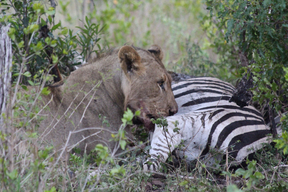 I lift my head and lick the salty blood off my face. The smell of blood fills my nostrils. Flies buzz excitedly around as I rip another piece of meat off our kill. I've eaten enough and my belly is full but I can't resist eating more of this warm, succulent feast. A rumbling noise attracts my attention and I lazily lift my head to see what it is. I know that nothing with any sense would threaten me while I'm eating. It's nothing to worry about - it's one of those things that is often around but never bothers me or tries to take my kill. Strange. I snap at a fat fly that is buzzing near my snout but it flies lazily away. I look once more at the thing as bright flashes and sounds come from it. It does not interest me. I'm tired. I'm content. The sun is warm. I close my eyes. 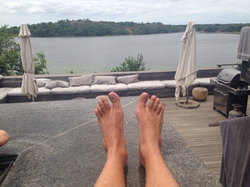 Africa has many aspects that make it the most amazing continent - and certainly one of them is its unrivaled wildlife. It's good to start on a high, so we start our Africa Tour with a couple of days in the Phinda game reserve in northern KwaZulu Natal. This private game reserve is home to the big 5 and we are blessed to be staying in Mziki lodge - where words can't describe the stunning beauty of its setting. The lodge is set above a huge dam which means that nearly all the time you can watch hippos and crocodiles lurking in the water and a constant stream of animals making their way down to drink. The encounters with the wildlife are up close and personal, and we see them all - lion, elephant, leopard, rhino, buffalo, giraffe, nyala, impala, duiker, warthog, serval, and on and on. Yet one of the most thrilling sightings is seeing a lion at a kill. The radio crackles and a lion kill is reported. It's a bit of a drive from where we are but we radio in to book our spot - only 3 vehicles are allowed at a sighting at a time. "Mziki 9 you are standby one," the reply comes. "Confirm Mziki 9 as standby one," Matthew-brother-ranger answers. He's become a natural at negotiating the tricky roads as has Adam his young son who has mastered navigating the unmarked trails winding through the African bush. After some hasty driving on rutted roads and some free "airtime" - as the kids refer to the momentary weightlessness caused by being airborne when hitting a bump - we arrive at the sighting. It's a zebra kill and the pride are still enjoying their feast. They seem unperturbed by us as they lazily rip chunks of meat from the carcass. The power of these huge animals hits me as I see the ease with which they tear the zebra apart. A chill runs through me when the lion looks up, just meters away from our open Landrover and fixes it's yellow eyes on us. What's stopping it from leaping into the vehicle and grabbing dessert? Three bounds and it would be on us. All that raw power. That killing machine. Just meters away. She flicks her head, snapping at a bothersome fly and then closes her eyes. The danger seems to vanish...for a moment. This is Africa and this is why it is the most amazing place to visit. As for us we head off. We are going to find a place to have a bush breakfast. Situated on the top of a hill with sweeping views of the planes below we watch a pair of zebra graze peacefully. Full of life, yet not far away one of their family is satiating a lion pride. His death is their life. The circle of life. The smell of bacon fills the air as we sip the iconic morning game drive drink - hot chocolate and Amarula liqueur - This is Africa - death, life, renewal, perspective...unbeatable.
|
Archives
May 2017
Categories
All
|

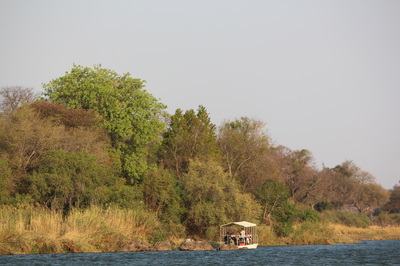
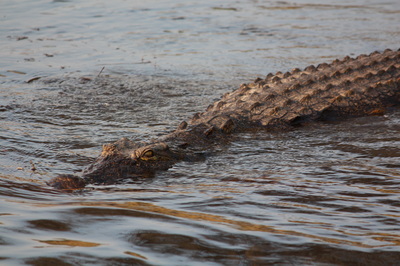
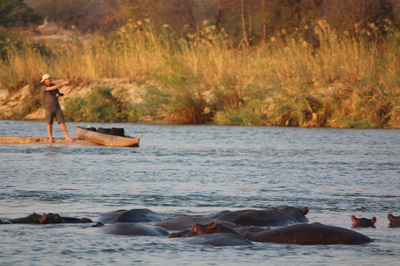
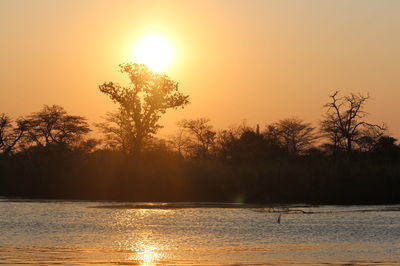
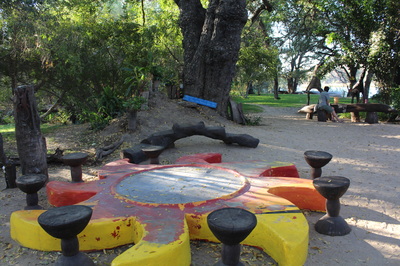
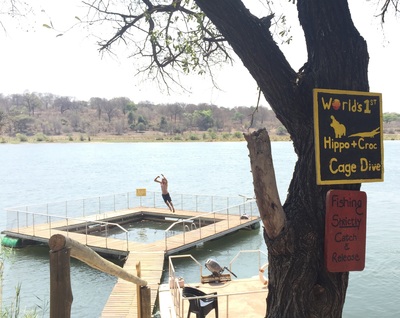
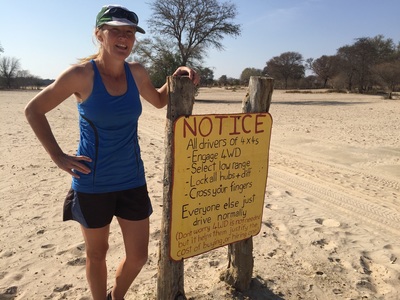
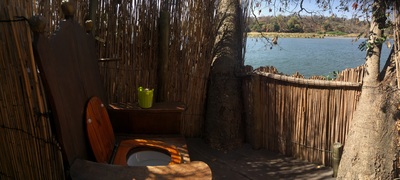
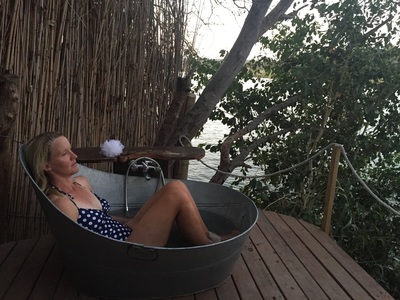
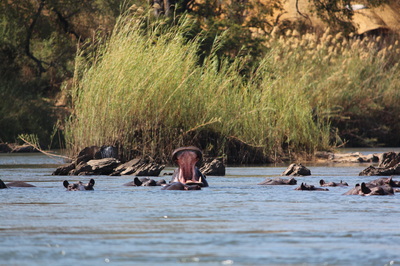
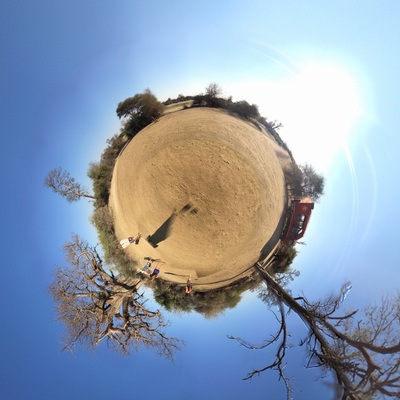
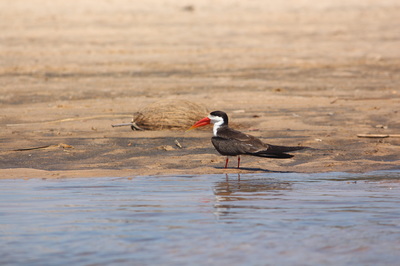
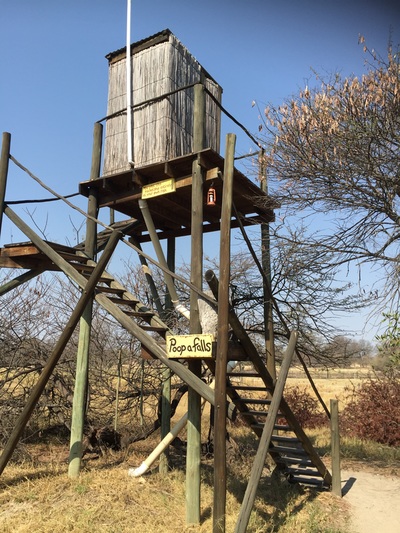
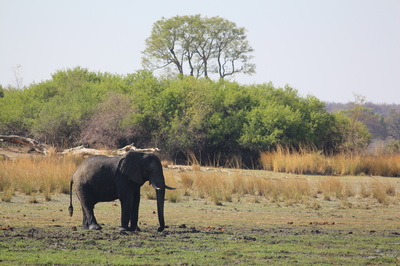
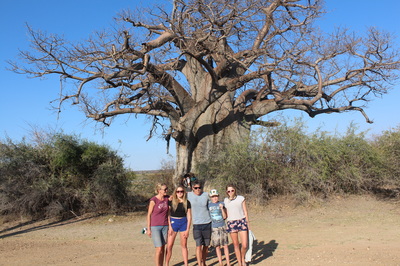
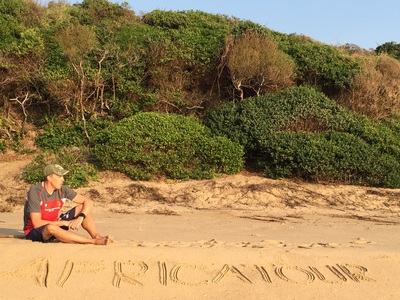
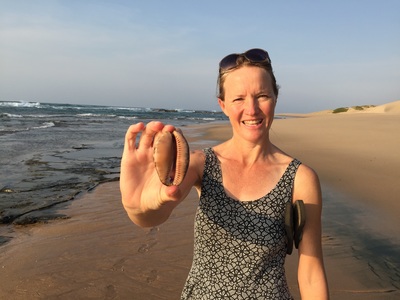
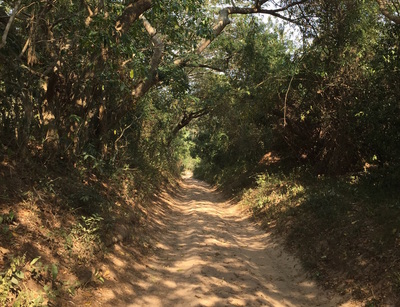
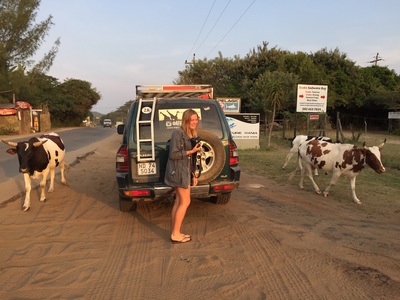
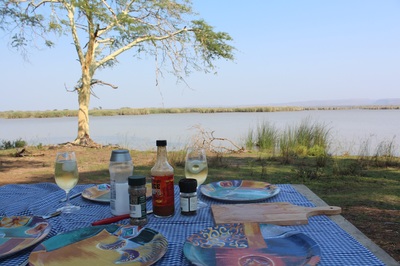
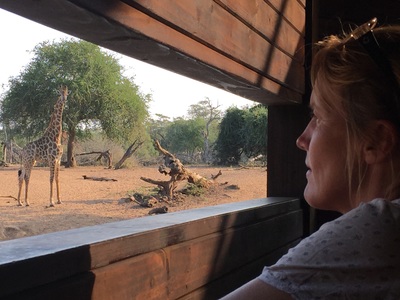
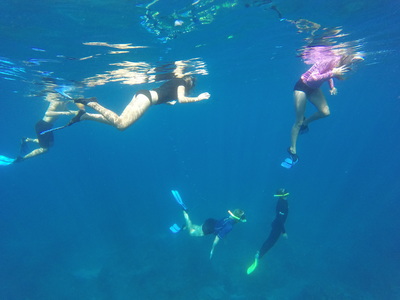
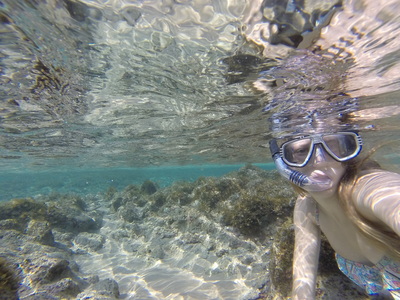
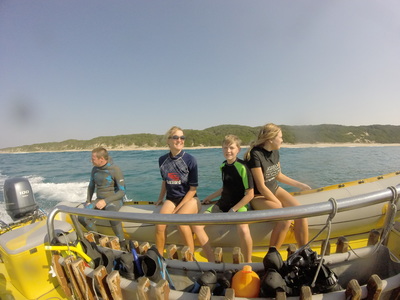
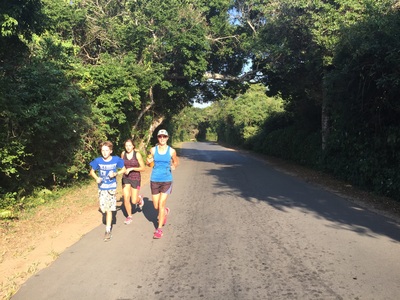
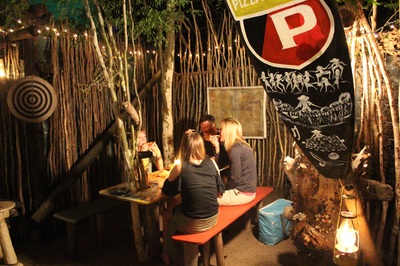
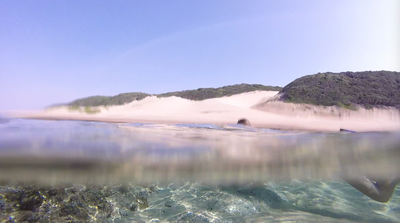

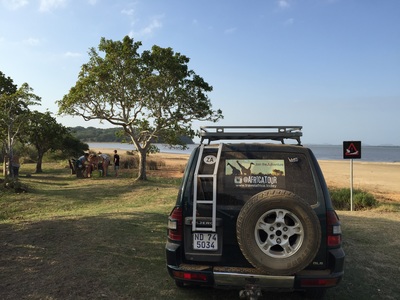
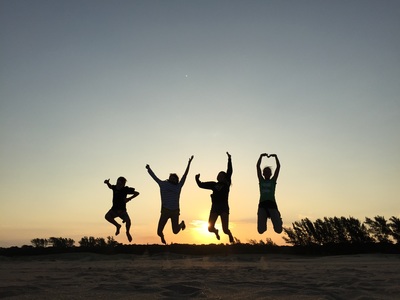
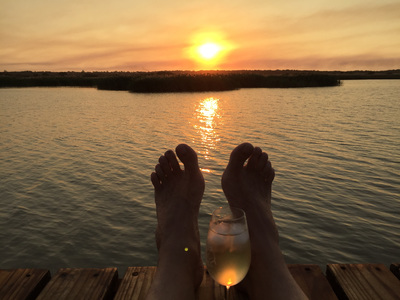
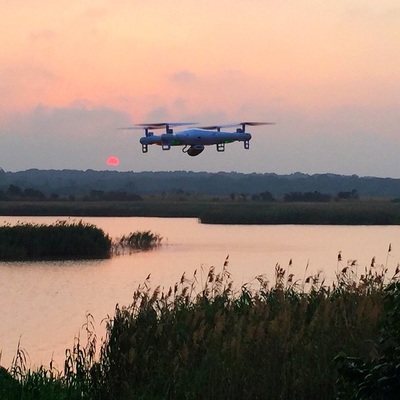
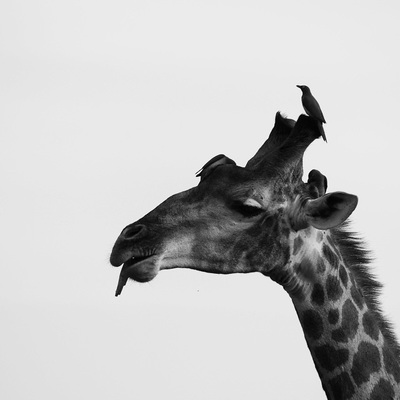
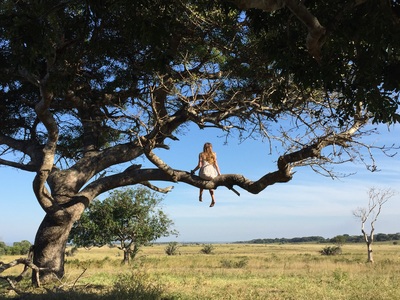
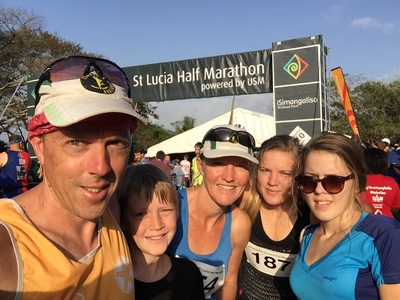
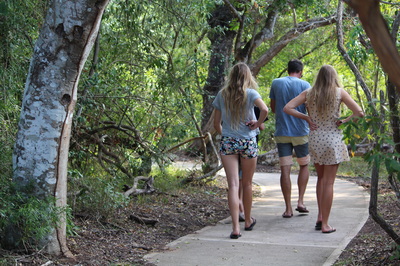
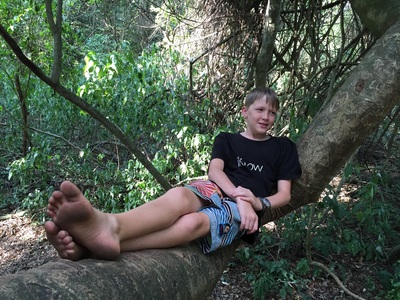
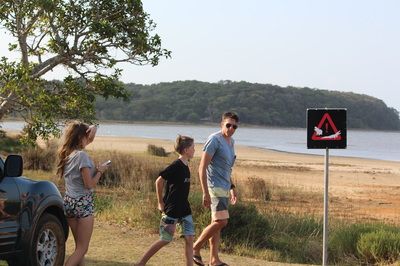
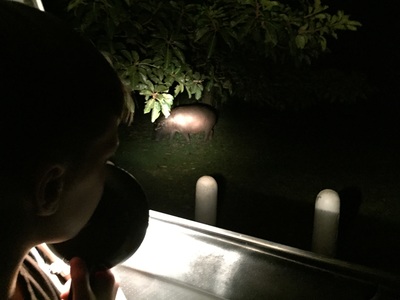
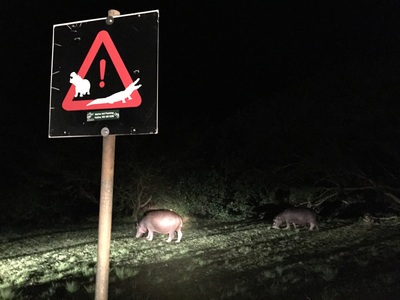
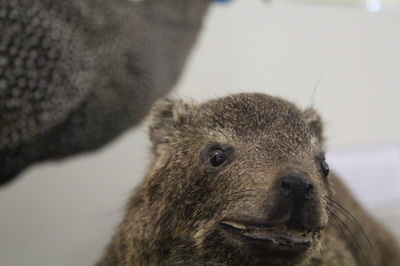
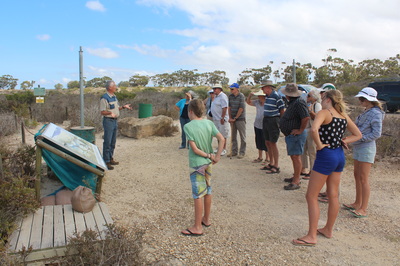
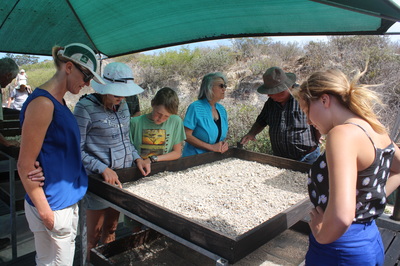
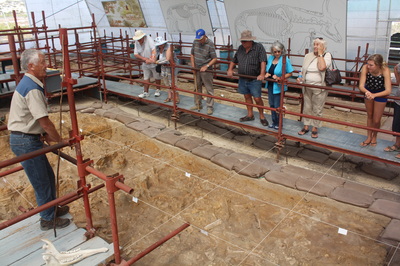
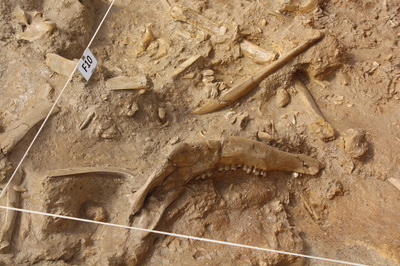
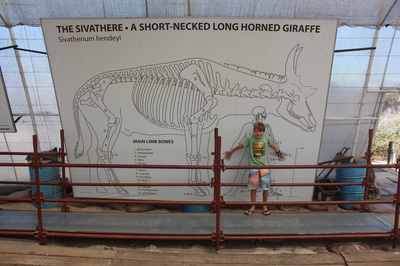
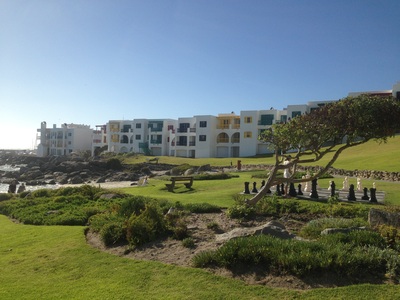
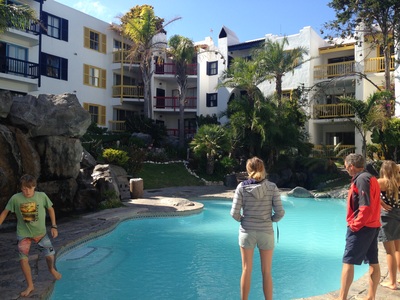
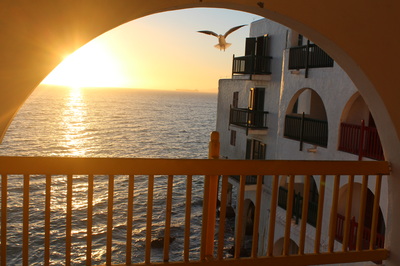
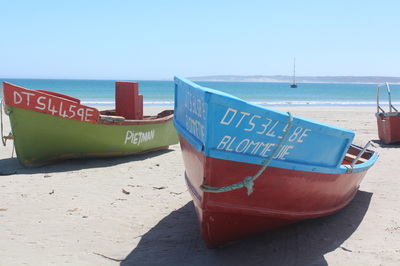
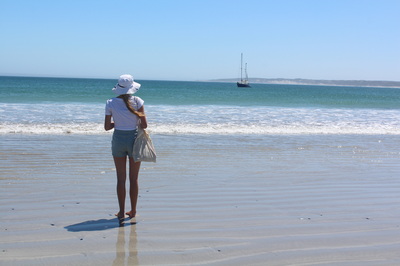
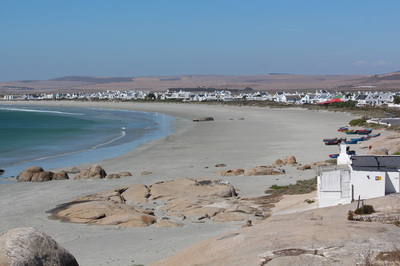
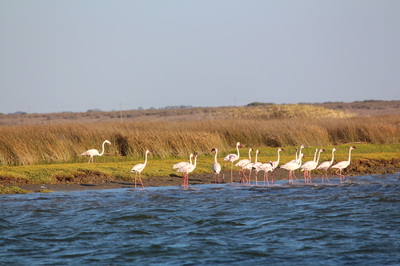
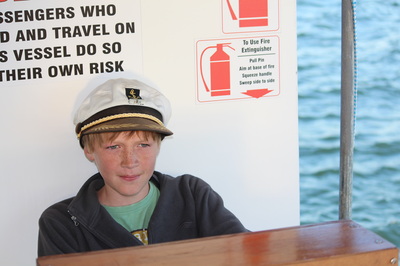
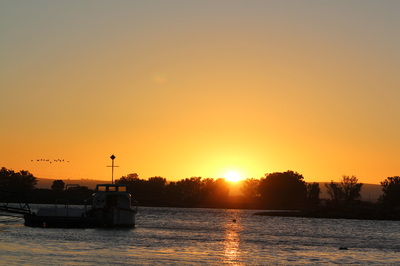
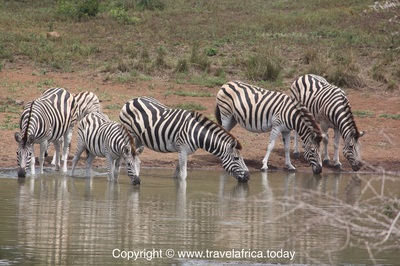
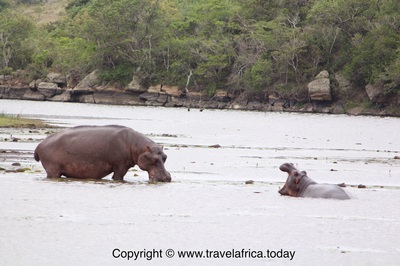
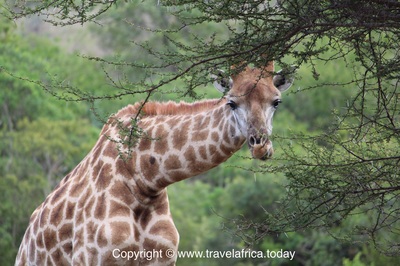
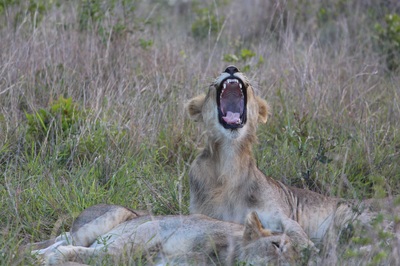
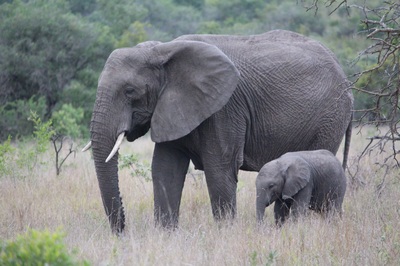
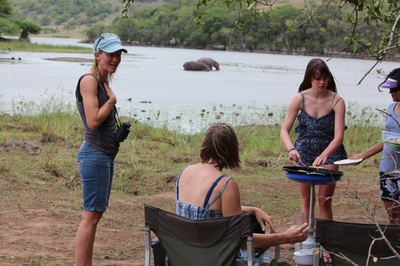
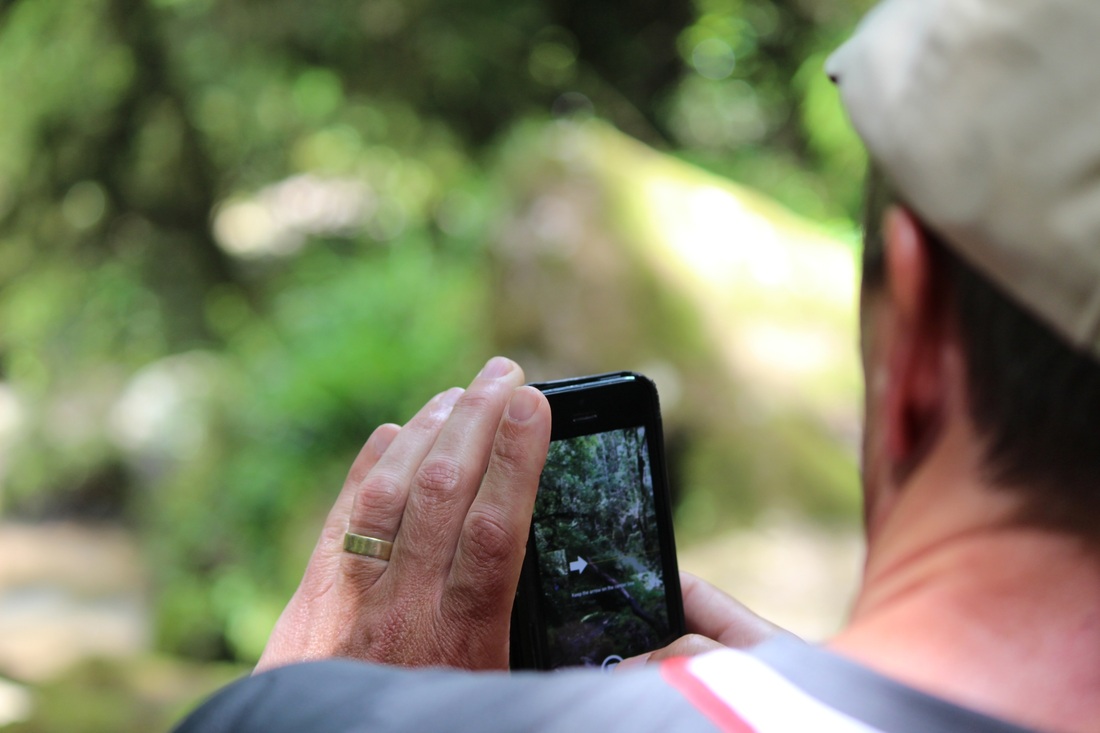
 RSS Feed
RSS Feed
